Science
Introduction
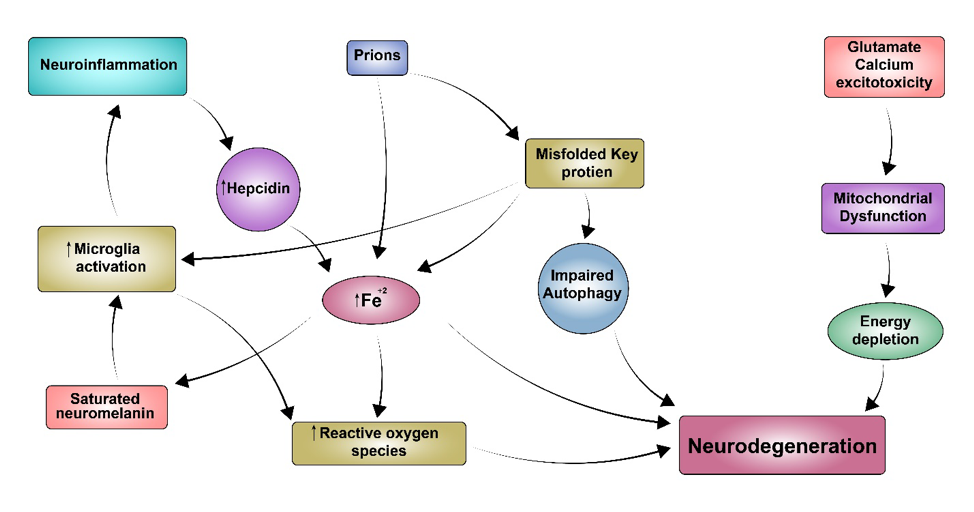
Fig. 1 Multiple processes contributing to neurodegeneration.
All of these processes take place in the body at different times and different rates. Therefore, it is difficult to believe that a single supplement aimed to support the body in addressing just one of these processes would be enough. Therefore, we have specially curated a blend of nutritional supplements grounded in research aimed at optimizing the body's ability to protect the health of neurons and microglial cells*.
Research studies on certain ingredients reported significant positive neuroprotective outcomes in pre-clinical models. Therefore, we've specifically chosen TUDCA, creatine and COQ10 as key premium ingredients to support healthy mitochondrial function, antioxidant activity to quench free radicals and to support a healthier inflammatory response against the natural stressors within the neurons and microglia*. We tested these three ingredients together to see if there is a combined effect in a Laboratory.
Methods:
Results(1):
In-vitro experimental conditions demonstrated an additive effect of ingredients found in Versamil Brain Dopamine Health.*
Neurodegenerative dopaminergic cell lines were treated with the combination of TUDCA/Creatine/CoQ10 for 14 days and showed a 24% increase in a neuronal biomarker NFH compared to the untreated cells (Fig. 2A). Another neuronal biomarker Tubulin filament area was also increased by 16% compared to the untreated cells (Fig. 2B). None of the three individual supplements alone or in other combinations showed an increase in these measures.
NFH, Tubulin and MAP2 are involved in interactions with cytoskeletal elements, communication with other cells, and regulation of protein folding and transport. Neuron loss, regardless of cause, is accompanied by corresponding decrease of these biomarkers. Therefore, their increase suggests enhancement of well-being of neurons.
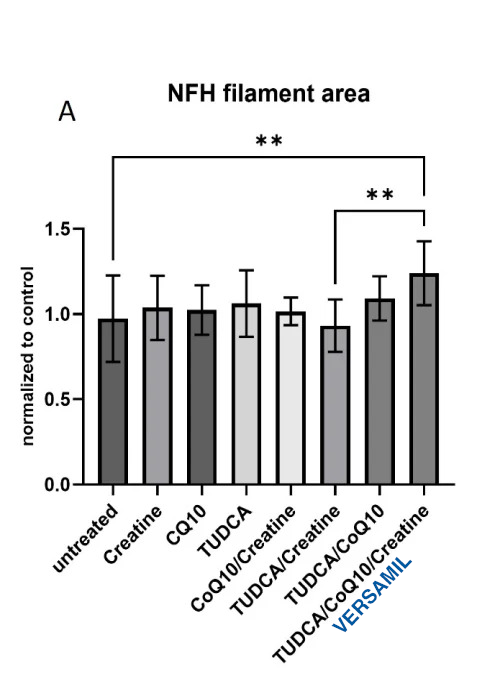
A. Neurofilament heavy chain
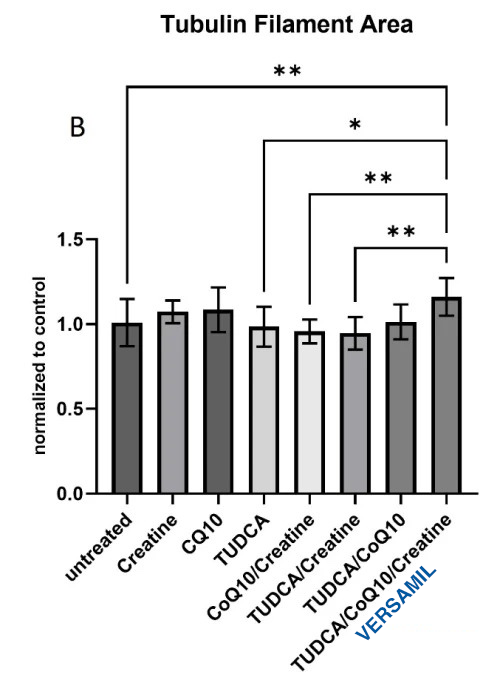
B. Tubulin filament.* P<0.05; ** P<0.001
Fig. 2 Effect of experimental conditions on neurodegenerative cell line in vitro.
Interestingly, even in the healthy control cell line treated with the combination of TUDCA/Creatine/CoQ10 for 28 days a biomarker MAP2 was increased by 10% compared to the untreated cells (Fig. 3).
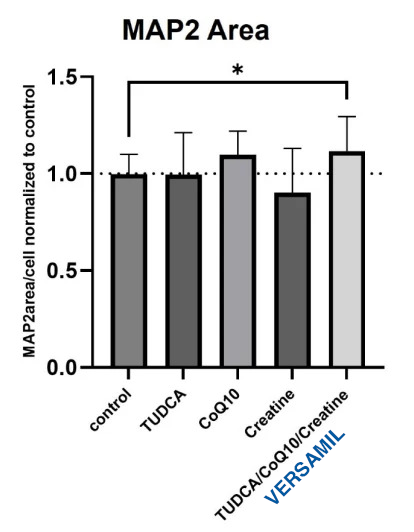
Fig. 3 Effect of experimental conditions on a healthy control cell line in vitro. MAP2. * P<0.05
Effect of experimental conditions on Human Microglia (inflammatory) cell line in vitro
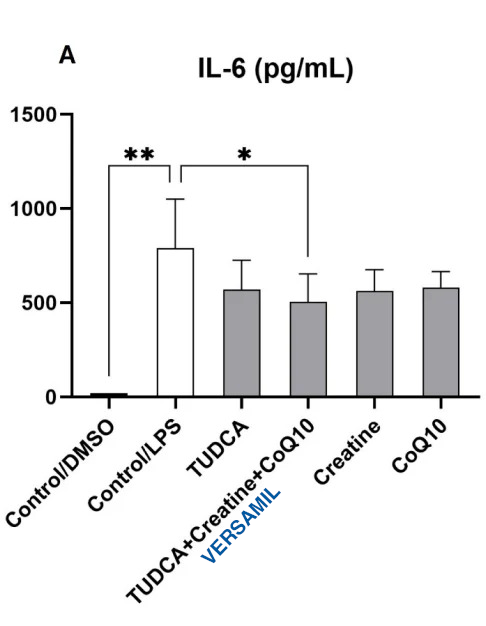
A. IL-6.
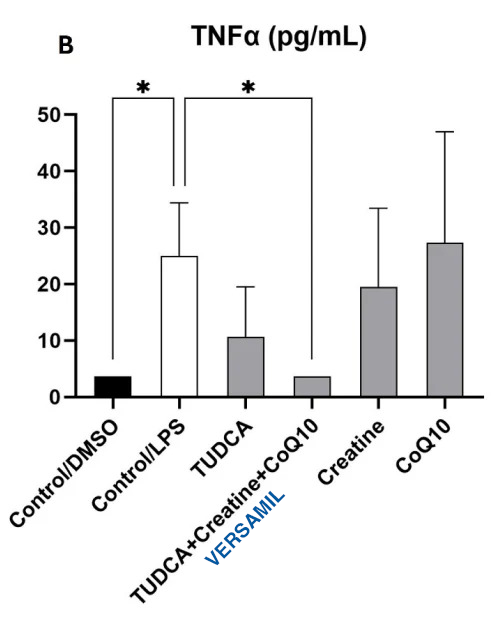
B. TNF-alpha. * P<0.05; ** P<0.001.
Fig. 4 Effect of experimental conditions on pro-inflammatory biomarkers in vitro.